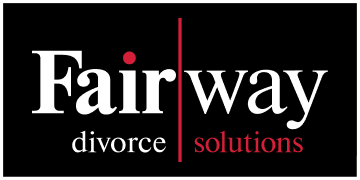What to Know: Federal Child Support Guidelines
05 April 2017
A look at the Federal Child Support Guidelines
 It is always a helpful tactic by parents going through a divorce to minimize future conflict. That means proactively defining what expectations are regarding both children and money. It also helps to know what the current Federal Child Support Guidelines are.
It is always a helpful tactic by parents going through a divorce to minimize future conflict. That means proactively defining what expectations are regarding both children and money. It also helps to know what the current Federal Child Support Guidelines are.
This is a conversation that should be had with your mediator. Your Fairway Divorce Solutions mediator will encourage both sides to discuss their expectations towards Federal Child Support.
There are a few other things that they will want to hammer out as well. Tax implications for children and the process to review child support are a few. The management of costs for extraordinary expenses and medical conditions, should they occur. Life insurance to support the children should one of the parents pass on. And, lastly, the saving for children’s future education.
Defining Federal Child Support
This is where having a detailed resolution plan comes into play. The more detailed your plan, the less likely you will have a future conflict regarding these specific circumstances. Here is a notable quote regarding that Federal Child Support:
“The Federal Child Support Guidelines identify broad categories of child related expenses that might not be considered part of your monthly child support payment.”
The expenses referred to in the Federal Child Support Guidelines are often referred to as “section 7 expenses.” Expenses cover a portion or all of the costs of child care. There are a few things to take into consideration that can determine the inclusion or exclusion of a section 7 expense.
This can include the necessity of the expense to the well-being of the child. It can also include the reasonableness of the expense when compared with the financial resources of the parent as well as the spending patterns of the family prior to the separation.
These expenses are generally shared in proportion to each of the parent’s incomes and are adjusted for spousal support.
The categories of section 7 expenses as outlined by the Federal Child Support Guidelines:
- Child care expenses incurred as a result of the custodial parent’s employment, illness, disability or training for employment
- That portion of the medical and dental insurance premiums attributable to the child
- Health-related expenses that exceed insurance reimbursement by at least $100 annually, including orthodontic treatment; professional counseling provided by a psychologist, social worker, psychiatrist, or any other person; physio-, occupational, or speech therapy; and prescription drugs, hearing aids, glasses and contact lenses
- Extraordinary expenses for primary or secondary school education, or for any other education programs that meet the child’s particular needs
- Expenses for post-secondary education
- Extraordinary expenses for extracurricular activities.
In the province of Alberta, the Maintenance Enforcement Program (MEP) has recently changed how it enforces certain types of extraordinary child-related expenses. Generally, the MEP has interpreted and enforced payment of expenses based on general statements. Identify these changes in a written agreement, or court order.
With the recent changes, MEP now requires more detailed information. These changes enforce section 7 expenses that are clearly identified in the agreement/order.
Examples under section 7
For example, if the agreement/order only provides a general category for “post-secondary education” and does not specifically identify tuition, books, room and board, and student union fees as a section 7 expense, MEP will only enforce the tuition and books. The agreement/order may also only provides a broad category for “hockey,” or “art classes,” without further direction MEP may enforce any expense related to this activity.
When determining the proportional share for child care, you should identify any tax benefits and subsidies available to the parent who is incurring the expense. You should also identify the effect of these benefits on the amount owed by the other parent.
Without this clarity, you may be paying the incorrect amount towards your childcare obligations. To better understand the tax implications of child care, you may require assistance from an accountant, or a Certified Divorce Financial Analyst (CDFA). Many Fairway Divorce Solutions mediators also carry the CDFA designation.
Identifying Financial Expectations
Take the time to identify the financial expectations of your co-parent as this is more important than ever. Your parenting plan should describe expectations regarding who will administer the payment. It should also cover when a verbal agreement is sufficient when it is necessary to have written agreements. It should also specify when to develop specific budgets for sports equipment, and maybe when it will be necessary to provide receipts as proof of payment.
When reviewing extraordinary expenses, your Fairway Divorce Solutions mediator will work with you to uncover your expectations regarding these expenses and develop processes for co-parents to review future expenses when they occur.


